Warning Signs of Vitamin Deficiencies You Can Spot in the Mirror
In our fast-paced world, where convenience often trumps nutrition, vitamin deficiencies are more common than many realize. These deficiencies can manifest in various physical symptoms, often visible in our reflections. The mirror becomes a tool for self-diagnosis, revealing subtle clues about our body's nutritional needs. Understanding these signs is crucial, as they can indicate underlying health issues that, if left unaddressed, could lead to more severe conditions. That's why we've expanded our list of specific vitamin deficiency warnings that you might notice in the mirror, offering a comprehensive guide to recognizing and addressing these signs.
1. Pale Skin and Vitamin B12 Deficiency

One of the most noticeable signs of a vitamin deficiency is a change in skin tone. Pale skin can often be an indicator of a Vitamin B12 deficiency. This essential vitamin plays a critical role in red blood cell production, and without it, your skin may lose its healthy hue. Vitamin B12 deficiency can also lead to fatigue and weakness, as your body struggles to transport oxygen efficiently. Those who follow a vegan or vegetarian diet are particularly at risk, as B12 is primarily found in animal products. To combat this deficiency, consider incorporating fortified foods or supplements into your diet, and consult with a healthcare provider to ensure adequate intake.
2. Brittle Hair and Nails Linked to Biotin Deficiency

Brittle hair and nails are often more than just cosmetic concerns; they can be a telltale sign of biotin deficiency. Biotin, also known as Vitamin B7, is crucial for the health of your hair, skin, and nails. Without sufficient biotin, you may notice your hair becoming dry and prone to breakage, while your nails may become thin and brittle. This deficiency is relatively rare but can occur in individuals who consume raw egg whites over an extended period, as they contain avidin, a protein that inhibits biotin absorption. Increasing your intake of biotin-rich foods like eggs, nuts, and whole grains can help restore strength and vitality to your hair and nails.
3. Cracked Lips and Riboflavin Deficiency

Cracked or chapped lips, particularly at the corners of the mouth, can be more than just a result of harsh weather. This condition, known as angular cheilitis, is often linked to a deficiency in riboflavin, or Vitamin B2. Riboflavin is essential for energy production and cellular function, and its absence can lead to inflammation and lesions on the lips. Dairy products, eggs, lean meats, and green vegetables are excellent sources of riboflavin. Ensuring a balanced diet with these foods can help prevent the uncomfortable and unsightly effects of this deficiency, keeping your lips healthy and hydrated.
4. Swollen and Bleeding Gums and Vitamin C Deficiency

Swollen and bleeding gums are classic signs of Vitamin C deficiency, a condition historically associated with scurvy. Vitamin C is vital for collagen production, which is necessary for healthy gums and skin. Without adequate Vitamin C, your gums may become inflamed and prone to bleeding, even with gentle brushing. This deficiency can also lead to other issues, such as fatigue and weakened immunity. Citrus fruits, berries, and leafy greens are rich in Vitamin C and should be consumed regularly to maintain oral health and overall well-being. If symptoms persist, a healthcare consultation is advisable to rule out other potential causes.
5. Hair Loss and Iron Deficiency
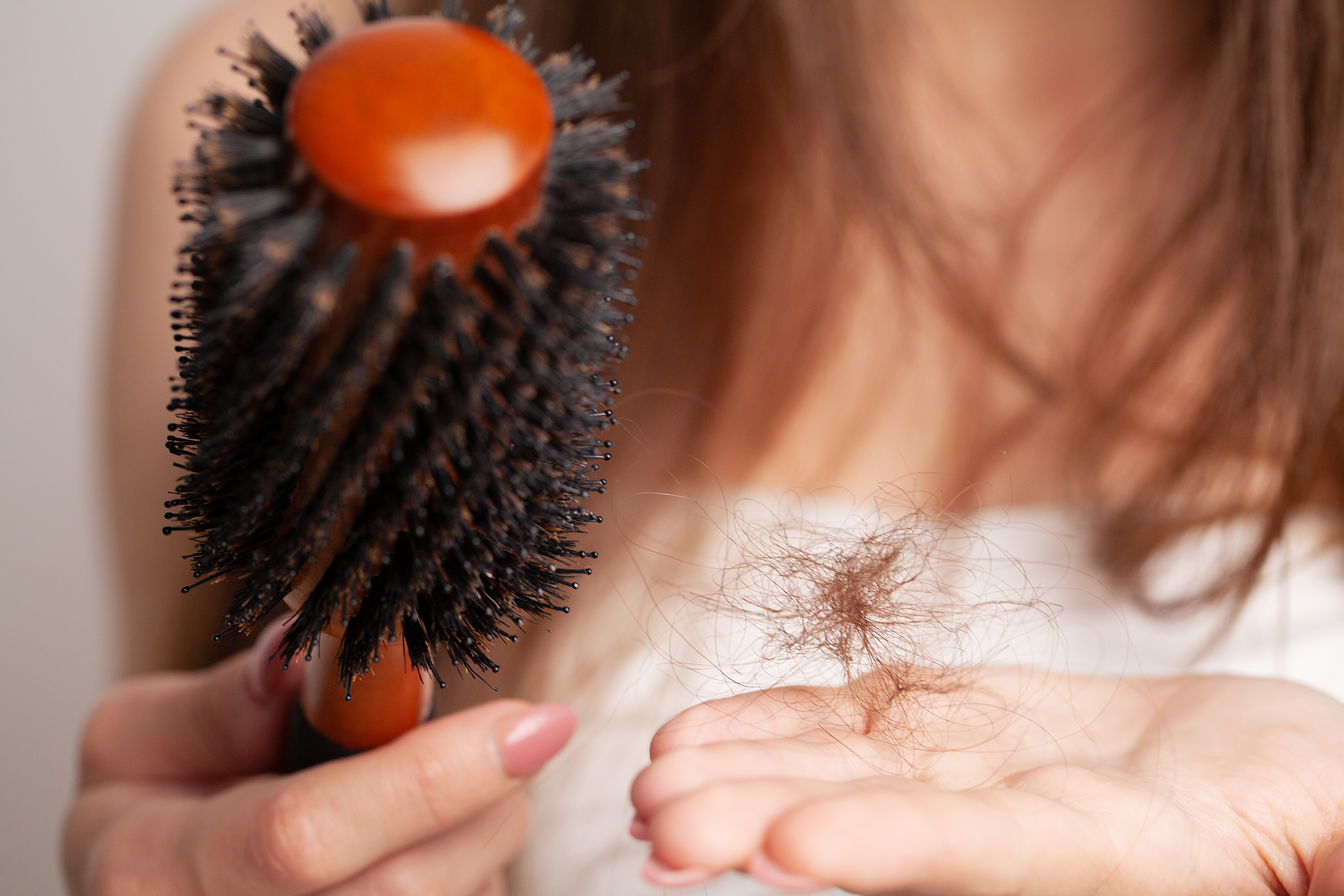
Hair loss can be distressing and is often linked to iron deficiency, a common nutritional shortfall. Iron is crucial for producing hemoglobin, which transports oxygen to cells, including those in hair follicles. Without sufficient iron, hair growth can slow, and hair may fall out more easily. Women, in particular, are at higher risk due to menstruation and pregnancy. Red meat, poultry, seafood, beans, and spinach are excellent sources of iron. It's important to pair iron-rich foods with Vitamin C to enhance absorption. Addressing iron deficiency not only helps prevent hair loss but also boosts energy levels and overall health.
6. Dry Skin and Vitamin A Deficiency

Vitamin A plays a pivotal role in maintaining healthy skin, and its deficiency can lead to dry, flaky skin. This vitamin is essential for skin repair and regeneration, helping to keep it smooth and supple. A lack of Vitamin A can also exacerbate conditions like eczema and acne. Foods rich in Vitamin A include carrots, sweet potatoes, and dark leafy greens, which should be part of a balanced diet to ensure skin health. In some cases, topical retinoids, a derivative of Vitamin A, may be recommended to treat severe skin issues, but these should be used under medical supervision.
7. Vision Problems and Vitamin A Deficiency

In addition to skin health, Vitamin A is crucial for good vision. A deficiency can lead to night blindness and other vision problems, as this vitamin is a key component of rhodopsin, a protein in your eyes that allows you to see in low light conditions. Prolonged deficiency can even lead to more severe conditions like xerophthalmia, which can result in blindness. Ensuring an adequate intake of Vitamin A through foods like liver, fish, and dairy products is essential for maintaining eye health. If you experience vision changes, it's important to seek medical advice to determine the cause and appropriate treatment.
8. Mouth Ulcers and Folate Deficiency
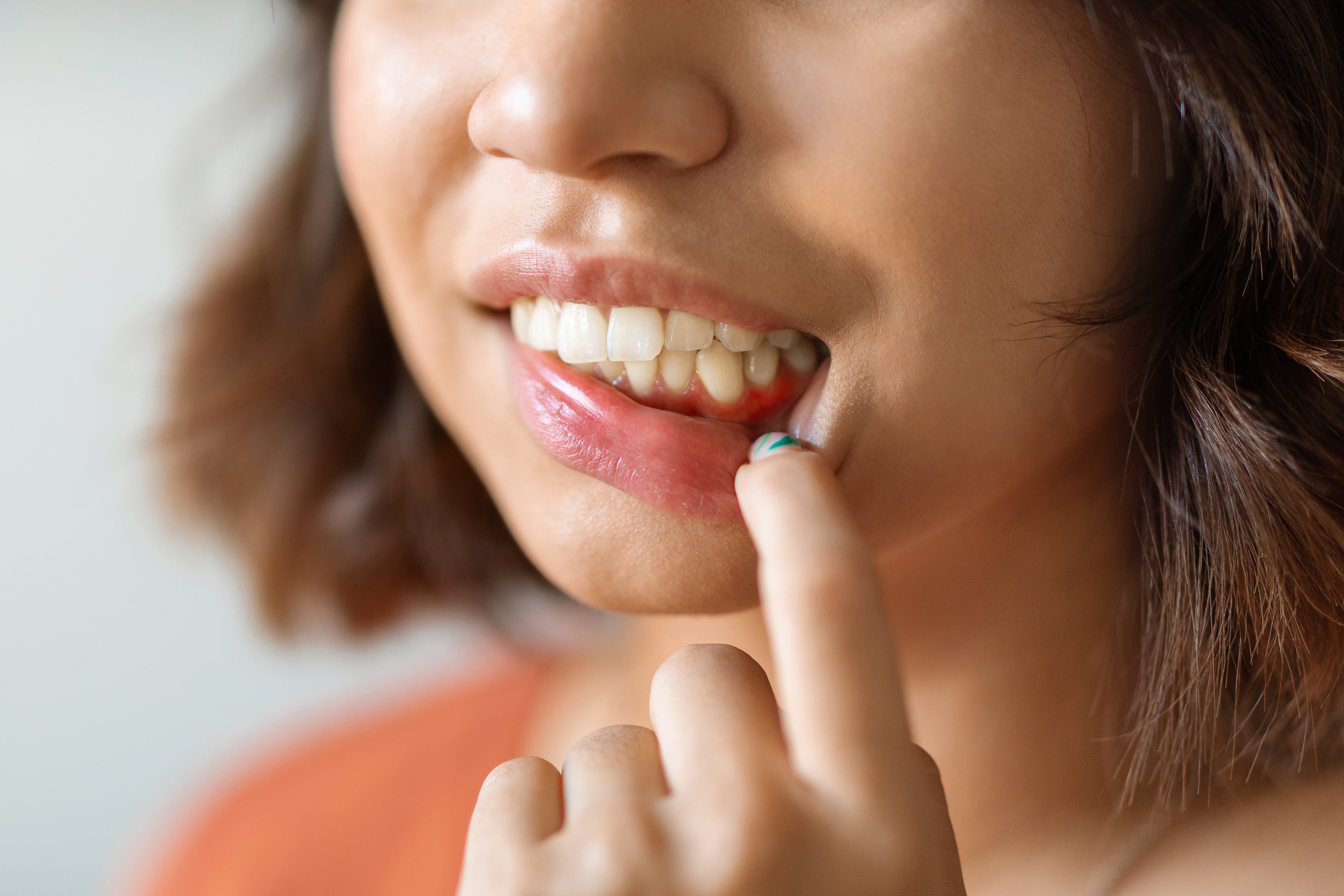
Mouth ulcers, or canker sores, can be incredibly painful and are often linked to a deficiency in folate, or Vitamin B9. Folate is crucial for DNA synthesis and repair, and its deficiency can lead to the development of ulcers and a sore, swollen tongue. Pregnant women are particularly encouraged to ensure adequate folate intake to prevent birth defects. Leafy greens, legumes, and fortified grains are excellent sources of folate. If you're frequently experiencing mouth ulcers, it may be worth assessing your diet and considering a folate supplement, especially if you're in a group at higher risk of deficiency.
9. Bone Pain and Vitamin D Deficiency

Bone pain and muscle weakness can be indicators of Vitamin D deficiency, a critical nutrient for bone health. Vitamin D helps your body absorb calcium, and without it, bones can become thin, brittle, or misshapen. This deficiency is common in individuals who have limited sun exposure, as the body produces Vitamin D when the skin is exposed to sunlight. Fortified foods, fatty fish, and supplements can help maintain adequate Vitamin D levels. If you're experiencing persistent bone pain, a healthcare provider can perform a simple blood test to check your Vitamin D levels and recommend appropriate interventions.
10. Dandruff and Zinc Deficiency

Dandruff can be more than just a minor annoyance; it can signal a zinc deficiency. Zinc is essential for cell growth and division, and its deficiency can lead to a flaky, itchy scalp. Zinc also plays a role in maintaining the integrity of the skin and immune system. Foods rich in zinc include oysters, beef, and pumpkin seeds. Ensuring adequate zinc intake can help alleviate dandruff and promote a healthy scalp. In some cases, topical treatments containing zinc pyrithione may be recommended to manage dandruff, but addressing the underlying deficiency is key to long-term relief.
11. Frequent Infections and Vitamin E Deficiency

Frequent infections and a weakened immune system can be signs of a Vitamin E deficiency. This vitamin is a powerful antioxidant that helps protect cells from damage and supports immune function. A lack of Vitamin E can leave the body more susceptible to infections and slow the healing process. Nuts, seeds, and green leafy vegetables are excellent sources of Vitamin E. Ensuring a diet rich in these foods can help bolster the immune system and reduce the frequency of infections. If you find yourself frequently falling ill, it may be worth exploring your Vitamin E intake with a healthcare provider.
12. Depression and Vitamin D Deficiency

Vitamin D deficiency has been linked to mood disorders, including depression. This vitamin plays a role in brain function and the regulation of neurotransmitters that affect mood. Low levels of Vitamin D can contribute to feelings of sadness, fatigue, and a lack of motivation. Sunlight exposure is a natural way to boost Vitamin D levels, but during the darker months or in areas with limited sunlight, supplementation may be necessary. If you suspect a Vitamin D deficiency is affecting your mood, it's important to discuss this with a healthcare provider, who can recommend appropriate testing and treatment options.
13. Muscle Cramps and Magnesium Deficiency

Muscle cramps and spasms can be uncomfortable and are often linked to a magnesium deficiency. Magnesium is crucial for muscle and nerve function, and its deficiency can lead to involuntary contractions and cramps. Athletes and individuals who sweat heavily are at higher risk of magnesium depletion. Dark chocolate, avocados, nuts, and whole grains are good sources of magnesium. Ensuring adequate intake can help prevent cramps and support overall muscle health. If you experience frequent cramps, it may be beneficial to evaluate your magnesium intake and consider supplementation under medical guidance.
14. Fatigue and Multiple Vitamin Deficiencies

Fatigue is a common symptom of various vitamin deficiencies, including those of Vitamin D, B12, and iron. These nutrients are essential for energy production and oxygen transport, and their deficiency can lead to persistent tiredness and lethargy. A balanced diet rich in a variety of vitamins and minerals is crucial for maintaining energy levels and overall health. If you're experiencing chronic fatigue, it's important to assess your diet and lifestyle and consult with a healthcare provider to determine the underlying cause and appropriate interventions. Addressing vitamin deficiencies can significantly improve energy and quality of life.
15. Easy Bruising and Vitamin C Deficiency
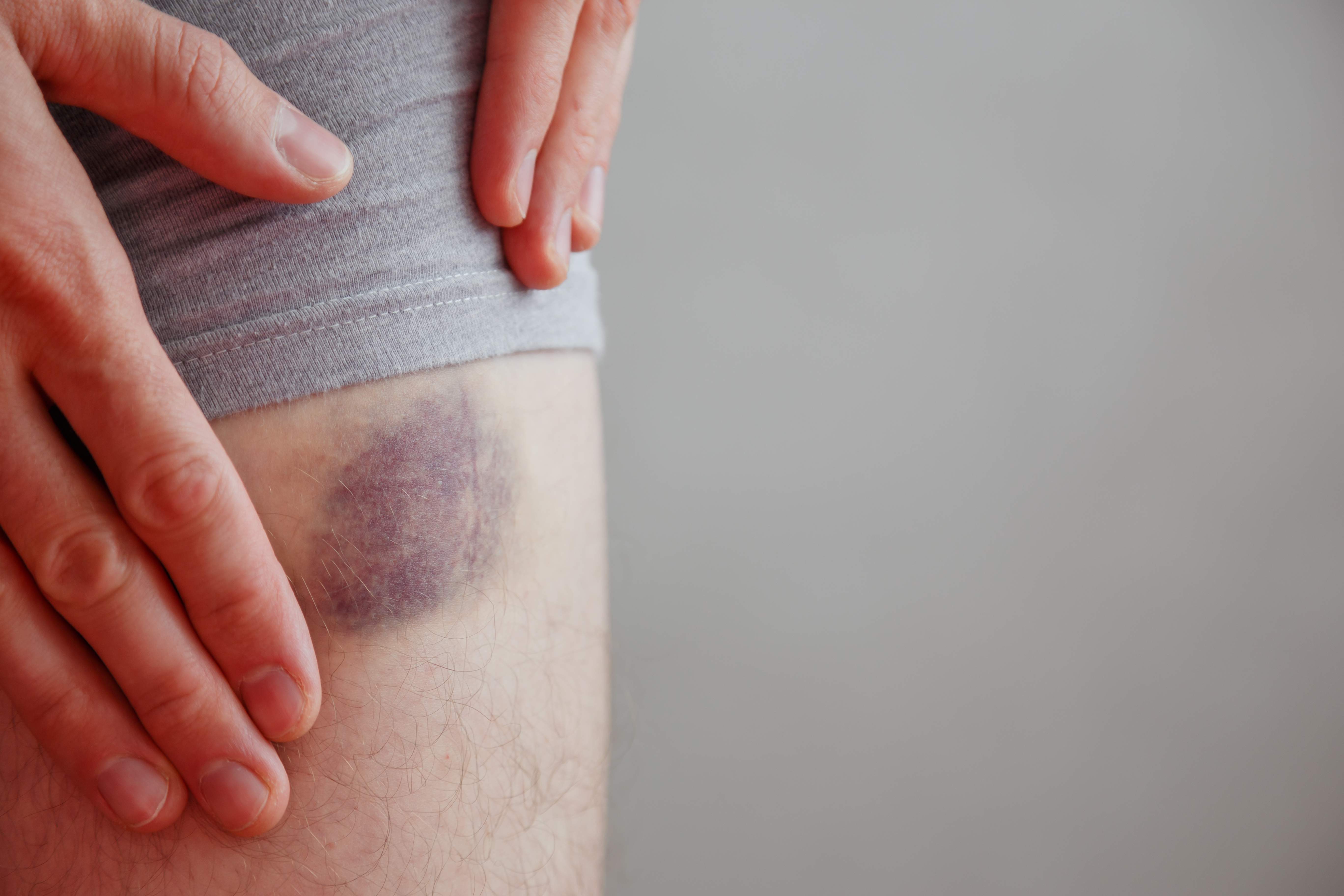
If you notice that you are bruising easily or that bruises are taking a long time to heal, it may be a sign of a Vitamin C deficiency. This vitamin is crucial for the production of collagen, a protein that keeps your blood vessels strong and flexible. Without sufficient Vitamin C, your blood vessels can become fragile and prone to breaking, leading to easy bruising. This symptom, often overlooked, can be a subtle but important red flag. Incorporating more Vitamin C-rich foods like citrus fruits, bell peppers, and leafy greens can help strengthen your blood vessels and improve your body's ability to heal.
16. Numbness or Tingling in the Extremities

A persistent tingling or numbness in your hands and feet can be a subtle sign of a Vitamin B12 deficiency. This essential vitamin is critical for the health of your nervous system, and a deficiency can lead to nerve damage, which can manifest as these unusual sensations. This condition, known as peripheral neuropathy, is a serious sign that your body is not getting the nutrients it needs. Meat, eggs, and dairy products are excellent sources of Vitamin B12. If you follow a vegan or vegetarian diet, it is especially important to ensure adequate intake through fortified foods or supplements.
17. Poor Wound Healing and Zinc Deficiency

If you find that cuts and scrapes are taking an unusually long time to heal, it may be a sign of a zinc deficiency. Zinc plays a crucial role in cell growth, immune function, and the repair of skin tissue. Without sufficient zinc, your body's ability to heal wounds is compromised, leaving you more susceptible to infections. Foods rich in zinc include oysters, beef, and pumpkin seeds. Ensuring adequate zinc intake can help speed up the healing process and bolster your immune system.
18. Unexplained Anemia and Iron Deficiency

While fatigue can be a sign of anemia, a specific red flag for an iron deficiency is a consistently low red blood cell count. Iron is essential for the production of hemoglobin, the protein in red blood cells that carries oxygen to the body's tissues. Without sufficient iron, your body cannot produce enough red blood cells, leading to a condition called iron-deficiency anemia. If you are experiencing symptoms like extreme fatigue, pale skin, and shortness of breath, a simple blood test can confirm a diagnosis. To combat this, consume iron-rich foods like red meat, poultry, and leafy greens.
19. Hair Loss and Biotin Deficiency

While hair loss can be distressing and is often linked to various factors, a severe biotin deficiency can be a contributing factor. Biotin, also known as Vitamin B7, is a crucial nutrient for the health of your hair, skin, and nails. Without sufficient biotin, your hair may become dry, brittle, and prone to breakage, leading to hair loss. While this deficiency is relatively rare, it can occur in individuals with certain health conditions or those who consume raw egg whites over an extended period. To combat this deficiency, increase your intake of biotin-rich foods like eggs, nuts, and whole grains.
20. Cracks at the Sides of the Mouth: Riboflavin and Niacin Deficiency
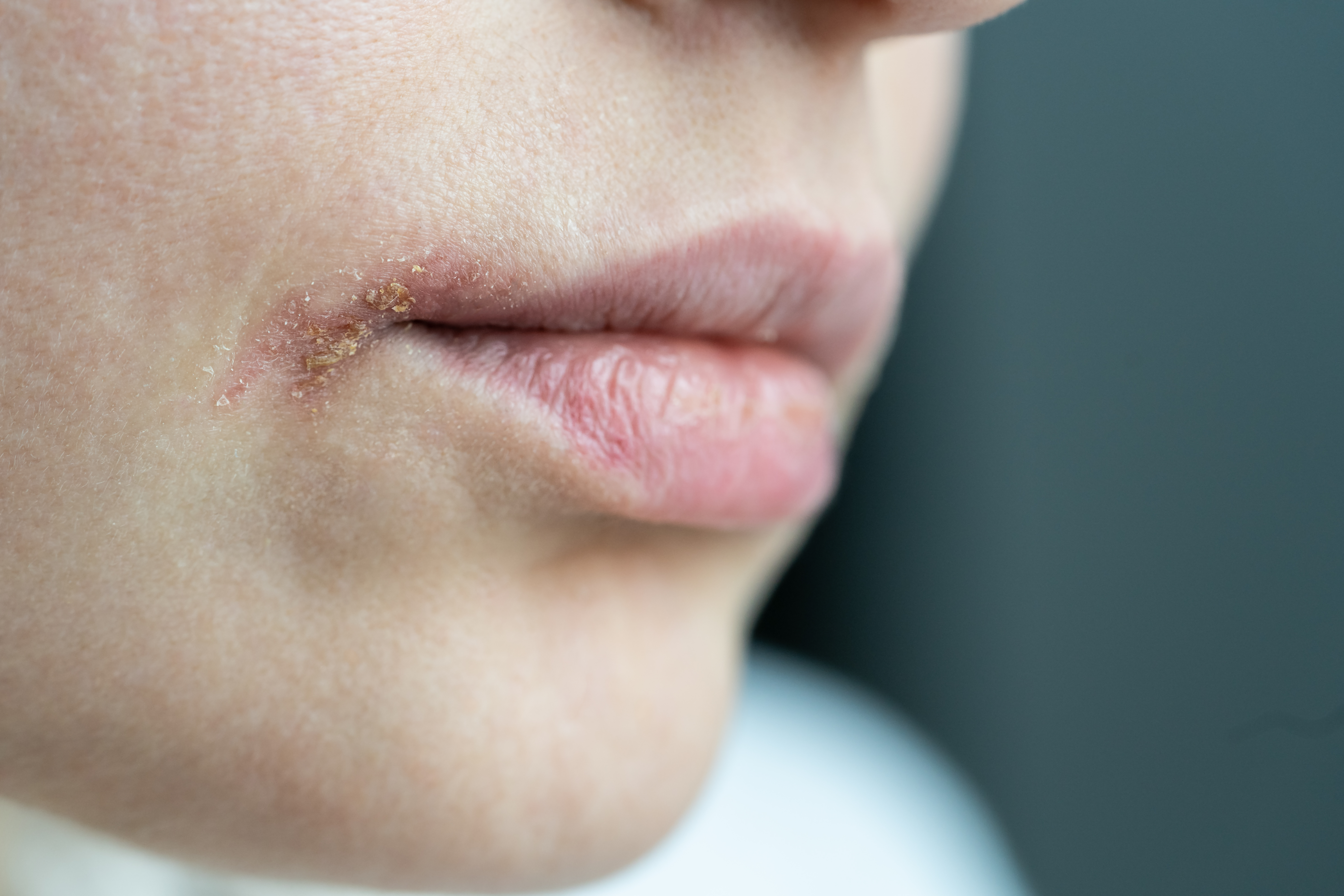
The uncomfortable cracks and sores that can appear at the corners of your mouth, known as angular cheilitis, can be a clear sign of more than just a single vitamin deficiency. While it's commonly linked to riboflavin (B2), it can also signal a lack of niacin (B3). These B vitamins are crucial for cellular repair and energy production. Without them, the sensitive skin at the mouth's corners is unable to heal properly, leading to persistent cracks and inflammation. To address this, incorporate foods rich in B vitamins, such as lean meats, eggs, legumes, and fortified cereals, into your diet.
21. Acne and Excessive Oiliness: Vitamin B6 and Zinc Deficiency
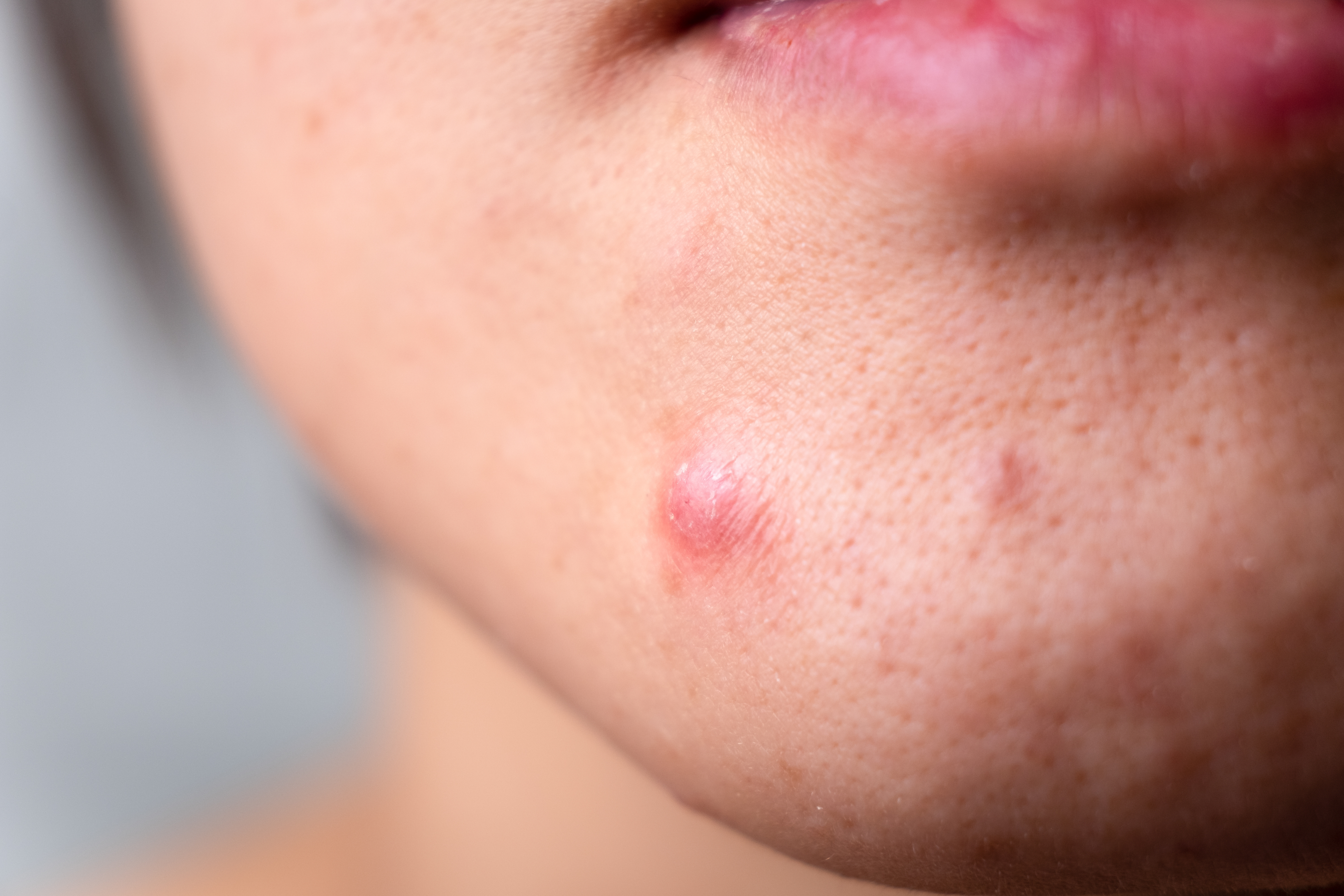
Beyond the usual suspects like hormones and diet, persistent acne and overly oily skin can be a sign of a double deficiency in Vitamin B6 and Zinc. These two nutrients are essential for regulating oil production in the skin and supporting a healthy inflammatory response. A lack of B6 can disrupt hormonal balance, which often contributes to acne. Meanwhile, zinc is a powerful anti-inflammatory that helps heal skin lesions and reduce redness. A deficiency can worsen acne symptoms and slow down recovery. Consider adding chickpeas, salmon, bananas, and pumpkin seeds to your diet to boost these vital nutrients.
22. Skin Rashes and Flaky Patches: Vitamin B6 and Zinc Deficiency

Red, scaly skin patches, particularly on the face and neck, can signal a lack of Vitamin B6 and zinc. These nutrients are critical for maintaining the integrity of the skin barrier. A deficiency can lead to a condition called seborrheic dermatitis, which causes flaky, itchy, and inflamed skin. The skin becomes more susceptible to environmental stressors and loses its ability to regenerate effectively. Increasing your intake of zinc-rich foods and B6-fortified grains can often help clear up these persistent rashes and restore your skin’s health.
23. Poor Night Vision: Vitamin A and Zinc Deficiency

While Vitamin A's role in vision is well-known, zinc also plays a critical, yet often overlooked, part. Zinc is necessary for the transport of Vitamin A from the liver to the retina to create the pigment melanin, which is crucial for low-light vision. Without sufficient zinc, even a healthy intake of Vitamin A can be useless. A deficiency can lead to night blindness or difficulty adapting to changes in light. Shellfish, red meat, and legumes are excellent sources of zinc that can improve this process and support overall eye health.
24. Swollen Tongue: Iron and Folic Acid Deficiency

A swollen, smooth, and abnormally red tongue, a condition known as atrophic glossitis, is a sign that goes beyond just iron deficiency. While a lack of iron is a common cause, it can also be a telltale sign of a folic acid deficiency. Both nutrients are critical for healthy cell division and blood cell production. When the body is low on these, the cells that make up the tongue's surface begin to atrophy and die off prematurely, causing it to appear swollen and smooth. This condition can make eating and speaking difficult, serving as a clear warning to seek out iron- and folate-rich foods like leafy greens, fortified cereals, and legumes.
25. Red Bumps on Arms and Thighs: Vitamin E and Essential Fatty Acid Deficiency

If you notice small, red bumps on your arms and the front of your thighs, it could be a sign of a deficiency in Vitamin E or essential fatty acids. This condition, often mistaken for acne or dry skin, is known as keratosis pilaris. Vitamin E and fatty acids are crucial for maintaining the skin’s barrier function and regulating cell turnover. Without enough of these nutrients, the hair follicles can become clogged with a protein called keratin, leading to these tiny, rough bumps. Incorporate foods like nuts, seeds, fatty fish, and avocados into your diet to restore your skin’s smooth texture.
26. White Spots on Nails: Zinc and Calcium Deficiency
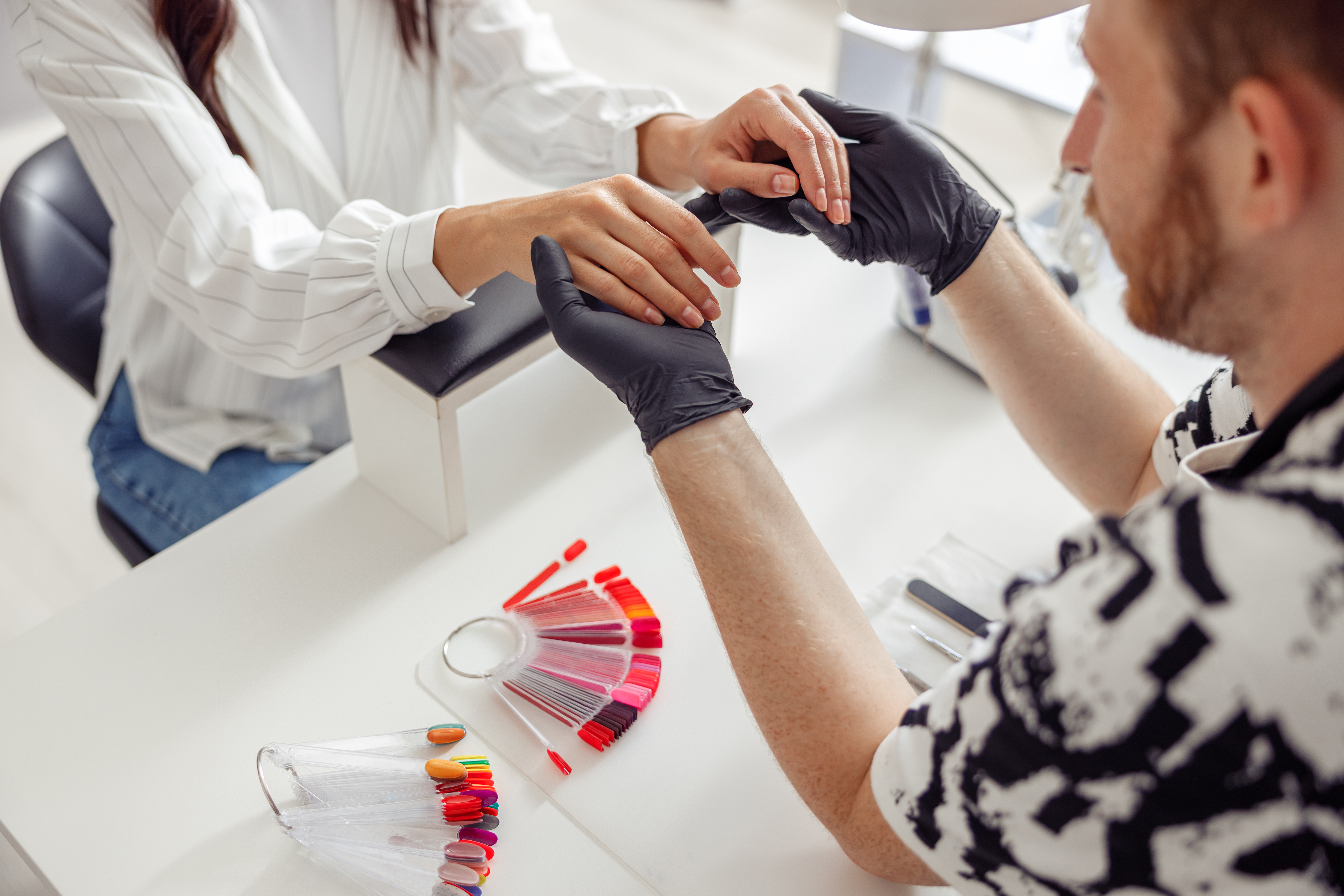
Those small, white spots on your nails, or leukonychia, are often mistakenly blamed on a calcium deficiency, but they can also indicate a lack of zinc. Zinc plays a critical role in cell growth and protein synthesis, which is essential for healthy nail formation. Without sufficient zinc, the nail matrix—the area where the nail plate forms—can be damaged, leading to these visible spots. To combat this, ensure you are getting enough zinc from sources like oysters, lean meats, and fortified cereals, as well as calcium from dairy products, leafy greens, or fortified plant-based milks.
27. Bleeding Under Your Fingernails: Vitamin K Deficiency

A lesser-known but distinct sign of a vitamin deficiency is the presence of small, dark red or purple streaks under your fingernails, called splinter hemorrhages. These can be a sign of a severe Vitamin K deficiency. Vitamin K is absolutely essential for blood clotting and without it, even minor pressure on the capillaries under your nails can cause them to break and bleed. This is a subtle but serious sign that your body's clotting mechanisms are compromised. Foods rich in Vitamin K include green leafy vegetables like kale, spinach, and Swiss chard, which should be consumed regularly to maintain proper blood health.
28. Persistent Itchiness: Magnesium and Calcium Imbalance

If you're experiencing an inexplicable, persistent itchiness without any visible rash or skin condition, it might be tied to a mineral imbalance. While not a direct deficiency in a single vitamin, it's often linked to an imbalance of magnesium and calcium. These minerals work in tandem to regulate nerve function, and when they're out of balance, your nerves can become hypersensitive, leading to a constant itching sensation. This can be especially common in individuals who consume a lot of dairy but not enough magnesium-rich foods. Address this by adding dark leafy greens, nuts, seeds, and legumes to your diet.
29. Swollen Ankles: Vitamin B1 (Thiamine) Deficiency

Swollen ankles, or edema, are often associated with serious heart conditions, but they can also be an early sign of a severe Vitamin B1 (thiamine) deficiency. Thiamine is crucial for proper cardiovascular function. Without enough of it, the heart muscle can weaken, leading to fluid retention in the lower extremities. While this is not a common deficiency in developed nations, it can occur in individuals with a diet heavy in refined carbohydrates or those who consume a lot of alcohol. To prevent this, ensure your diet includes whole grains, legumes, pork, and nuts to keep your heart and circulatory system running smoothly.
30. Puffy Eyes and B6 Deficiency
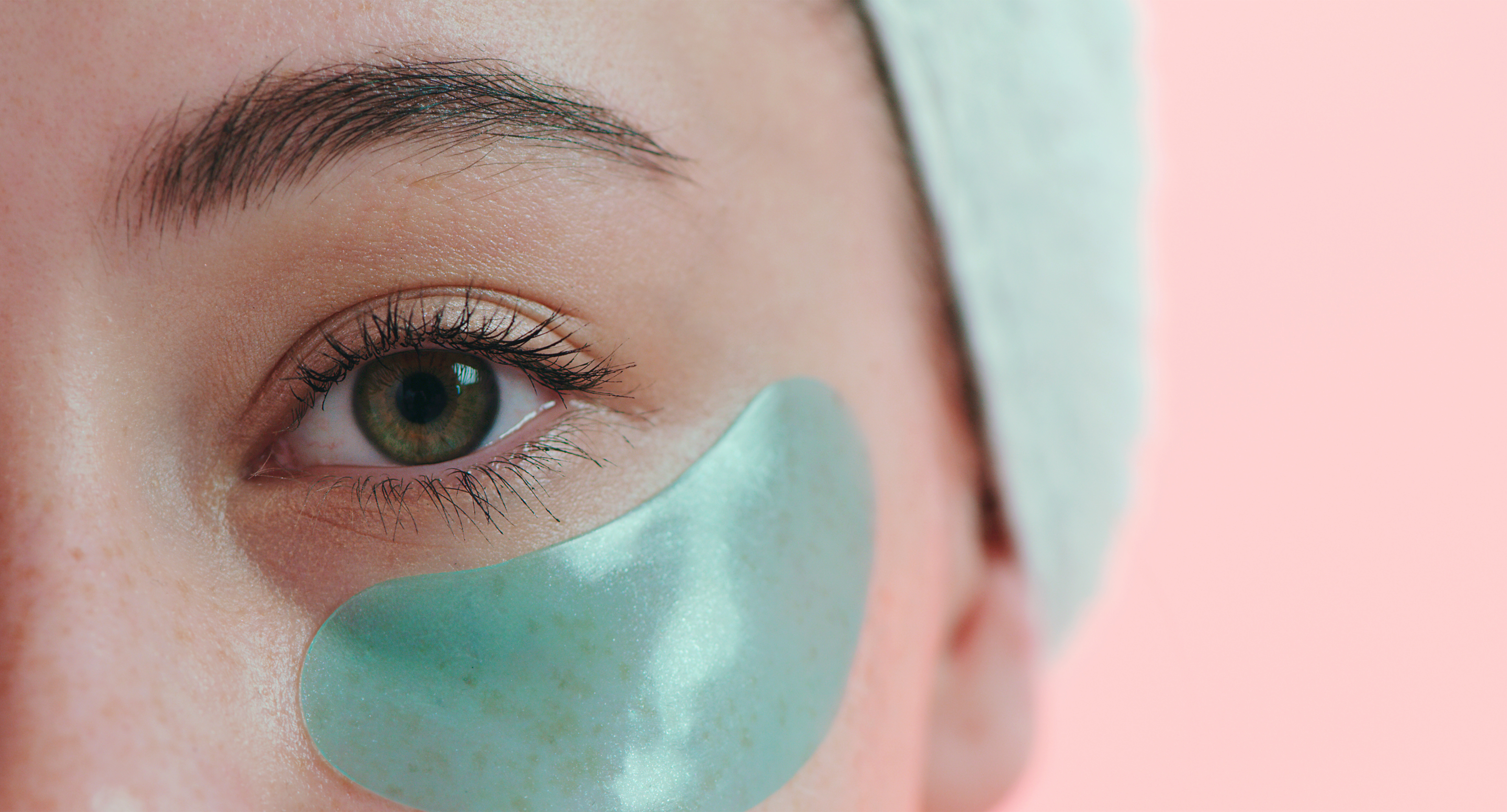
Waking up with puffy, swollen eyes can be more than just a lack of sleep. It may indicate a deficiency in Vitamin B6, a crucial nutrient for managing fluid balance and reducing inflammation in the body. When your body is low on B6, it can struggle to regulate electrolytes, leading to fluid retention and puffiness, especially in delicate areas like the skin around your eyes. B6 is also involved in the metabolism of stress hormones, so a deficiency can exacerbate both physical and emotional signs of stress. Incorporating foods like bananas, chickpeas, and salmon can help your body regain its fluid balance and reduce that morning puffiness.
31. A Smooth, Red Tongue and Niacin Deficiency
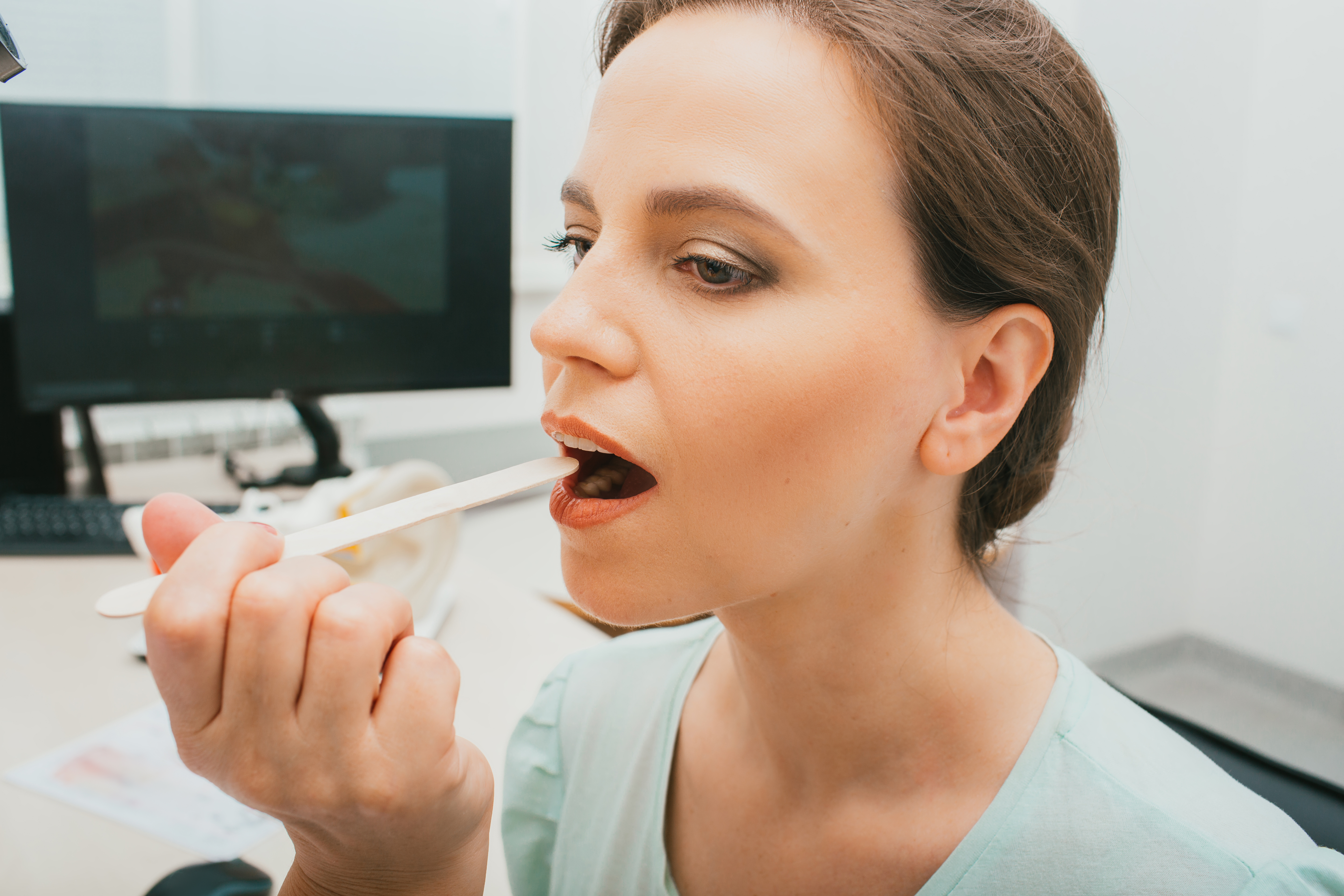
A healthy tongue should have a slightly bumpy texture with small projections called papillae. If you look in the mirror and your tongue appears abnormally smooth, swollen, and bright red, it could be a sign of a Niacin (Vitamin B3) deficiency. This condition, known as glossitis, is an early sign of pellagra, a severe niacin deficiency. Niacin is essential for cellular repair and metabolism, and without it, the cells on the surface of your tongue begin to atrophy, leading to its smooth appearance. A niacin-rich diet, including lean meats, nuts, and fortified grains, is critical to restoring your tongue's healthy texture.
32. Skin Pale with Yellow Tint and Folic Acid Deficiency

While pale skin is a well-known sign of iron or B12 deficiency, a different kind of pallor—one with a subtle yellow or waxy tint—can point to a lack of Folic Acid (Vitamin B9). Folic acid is vital for the production of red blood cells, which carry oxygen throughout your body. Without it, you can develop a type of anemia called megaloblastic anemia. This condition causes your red blood cells to become large and immature, leading to a build-up of bilirubin (a yellow-colored substance), which can give your skin that tell-tale yellowish hue. Leafy greens, avocados, and legumes are fantastic sources of this nutrient.
33. Flushed, Red Face and Lack of Omega-3s

Unexpected facial redness, especially a persistent flush or ruddy complexion, might not be a sign of an emotional state but an internal inflammatory response. This can often be linked to a lack of Omega-3 Fatty Acids. Omega-3s, found in fatty fish like salmon, walnuts, and flaxseeds, are powerful anti-inflammatory agents. When your diet is low in these healthy fats and high in pro-inflammatory omega-6s, your body can go into a state of chronic low-grade inflammation, which can visibly manifest as redness and a flushed appearance on your skin. Restoring this balance can calm your complexion from the inside out.
34. Yellow Eyes and Jaundice-like Skin with Vitamin B12 Deficiency
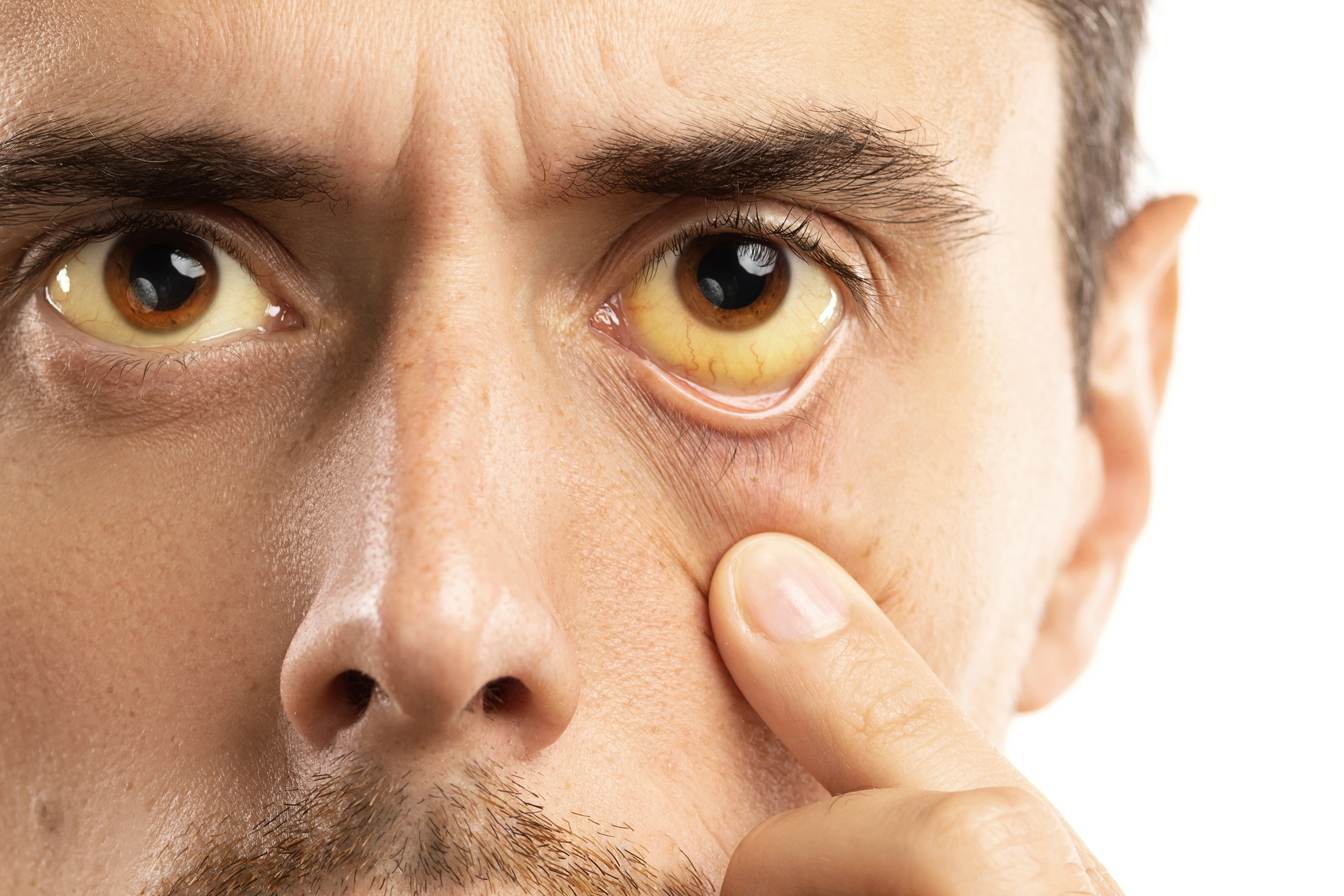
A more advanced and serious sign of a Vitamin B12 deficiency is a subtle yellowing of the skin and whites of the eyes, known as jaundice. This happens when the deficiency causes a type of anemia where your body can't produce enough healthy red blood cells. The body attempts to compensate by breaking down the existing ones, which releases a yellowish substance called bilirubin. When the liver can’t process this bilirubin quickly enough, it builds up in your blood, giving your skin and eyes a yellowish tint. This is a critical red flag that requires immediate medical attention and is a sign that your body's oxygen-carrying capacity is severely compromised.
35. Unexplained Bruising: Vitamin K Deficiency

If you're noticing unexplained bruises appearing easily or that even small bumps are leaving disproportionately large marks, it may be a subtle sign of a Vitamin K deficiency. This vitamin is absolutely essential for producing the proteins that allow your blood to clot properly. Without sufficient Vitamin K, your capillaries—the tiny blood vessels near the surface of your skin—become fragile and are more likely to burst, leading to those tell-tale bruises. This is a crucial sign that your body's natural defense against bleeding is compromised. You can boost your intake with green leafy vegetables like kale and spinach, or broccoli.
36. A Puffy, Swollen Tongue: Niacin and Vitamin B12 Deficiency

A healthy tongue should have a slightly textured surface, but if you look in the mirror and see a puffy, swollen, and unusually smooth or "beefy" red tongue, it could be a sign of a deficiency in Niacin (B3) or Vitamin B12. These vitamins are vital for cellular health and proper nerve function. When you're deficient, the tiny taste buds and projections on your tongue's surface begin to atrophy, leading to a smooth, sometimes painful, and swollen appearance. This condition, known as glossitis, can make eating and speaking difficult and is a serious indication that your body needs these essential nutrients.
37. Tiny Red or Purple Spots on the Skin: Vitamin C Deficiency

If you notice small red or purple spots on your skin, particularly on your arms, legs, or buttocks, it could be a sign of a severe Vitamin C deficiency. These spots, known as petechiae, are caused by blood leaking from tiny capillaries under the skin. Vitamin C is crucial for the formation of collagen, a protein that keeps your blood vessel walls strong and intact. Without enough of it, the capillaries become fragile and can easily rupture. This symptom, often overlooked as a minor skin issue, is a significant warning sign that your body's vascular system is compromised and needs immediate nutritional attention.
38. Brittle, Spoon-Shaped Nails: Iron Deficiency

While brittle nails can point to a number of deficiencies, a unique and unmistakable sign of severe iron deficiency is the development of nails that are thin, concave, and shaped like a spoon, a condition known as koilonychia. A healthy nail plate should be convex, curving slightly outward. When your body is extremely low on iron, it doesn't have the resources to produce a strong, healthy nail, causing it to become soft and bend inward. This physical change is a distinct and often late-stage sign of anemia, indicating a serious need to increase your iron intake through foods like red meat, legumes, and fortified grains.
39. A 'Sandpaper-Like' Rash on the Arms: Vitamin A Deficiency
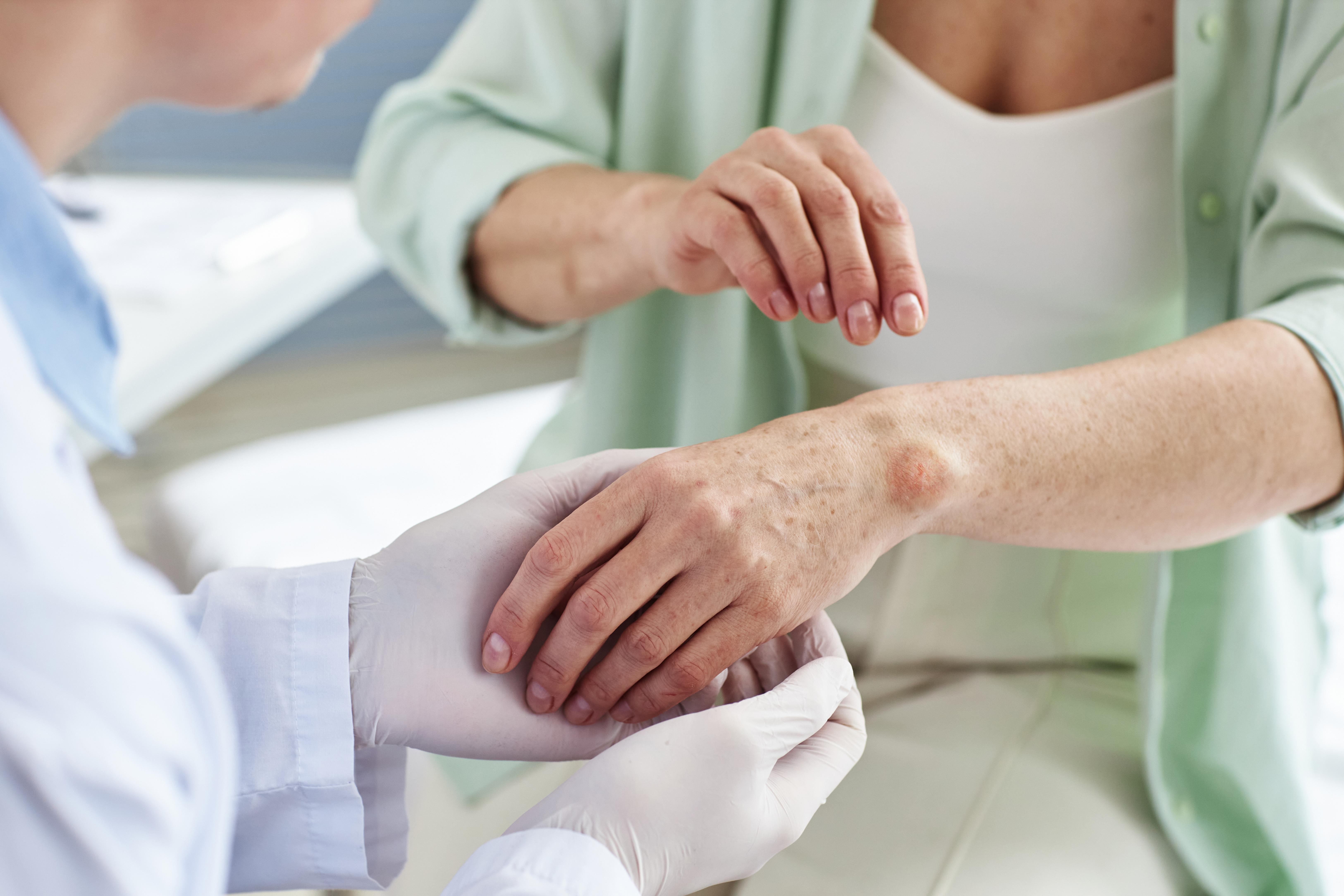
Vitamin A is essential for the healthy turnover and maintenance of your skin cells. When you don't get enough of this nutrient, a protein called keratin can build up in your hair follicles, leading to those small, rough bumps that feel like sandpaper. This condition can be a tell-tale sign that your body's cellular regeneration is compromised. You can address it by adding foods rich in Vitamin A, such as carrots, sweet potatoes, and leafy greens, to your diet.
40. Cracks at the Sides of Your Nose: Riboflavin (B2) Deficiency

If you notice persistent, flaky, and red cracks at the corners of your nose, it could be more than just dry skin. This condition, known as seborrheic dermatitis, is a subtle but clear sign of a riboflavin (Vitamin B2) deficiency. Riboflavin is essential for cellular repair and energy production, and without enough of it, the delicate skin in these areas struggles to regenerate properly. This can lead to persistent inflammation and peeling. To address this, make sure to add foods rich in B2 like milk, yogurt, eggs, and lean meats to your diet.
41. A Smooth, Red Tongue and Niacin Deficiency
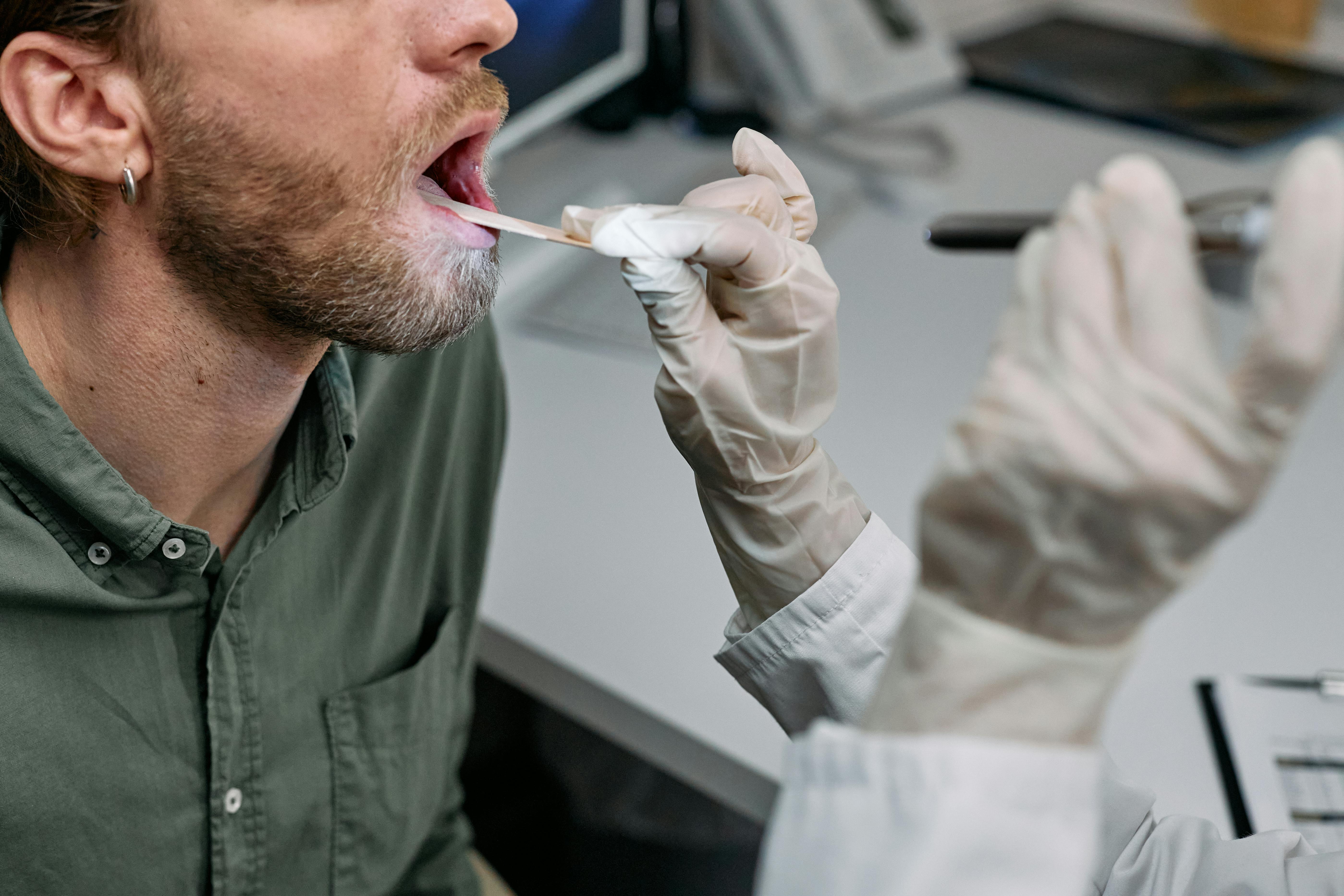
A healthy tongue should have a slightly bumpy texture with small projections called papillae. If you look in the mirror and your tongue appears abnormally smooth, swollen, and bright red, it could be a sign of a niacin (Vitamin B3) deficiency. This condition, known as glossitis, is an early sign of pellagra, a severe niacin deficiency. Niacin is essential for cellular repair and metabolism, and without it, the cells on the surface of your tongue begin to atrophy, leading to its smooth appearance. A niacin-rich diet, including lean meats, nuts, and fortified grains, is critical to restoring your tongue's healthy texture.
42. Small, Red Bumps on Your Arms and Thighs: Vitamin E and Essential Fatty Acid Deficiency

This condition, often mistaken for acne, is known as keratosis pilaris. Vitamin E and essential fatty acids are crucial for maintaining the skin’s barrier function and regulating cell turnover. Without enough of these nutrients, hair follicles can get clogged with a protein called keratin, leading to these small, rough bumps. Incorporate foods like nuts, seeds, fatty fish, and avocados into your diet to restore your skin's smooth texture.
43. Persistent Leg Cramps: Magnesium Deficiency

Experiencing frequent and often painful muscle cramps, especially in your legs at night, could be your body's way of signaling a magnesium deficiency. Magnesium is a vital mineral that plays a crucial role in muscle and nerve function, helping your muscles relax. When your magnesium levels are low, your nerves can overstimulate your muscle fibers, leading to those uncomfortable, involuntary contractions. This is a common issue for athletes, individuals who sweat a lot, and those with poor dietary habits. To combat this, you can increase your intake of magnesium-rich foods like dark chocolate, nuts, seeds, and leafy greens.
44. Tiny Red or Purple Spots on the Skin: Vitamin C Deficiency

These spots, known as petechiae, are caused by blood leaking from tiny capillaries under the skin. Vitamin C is crucial for the formation of collagen, a protein that keeps your blood vessel walls strong and intact. Without enough of it, your capillaries become fragile and can easily rupture. This symptom, often overlooked as a minor skin issue, is a significant warning sign that your body's vascular system is compromised and needs immediate nutritional attention.
45. Eyelid Twitches or Spasms: Magnesium Deficiency
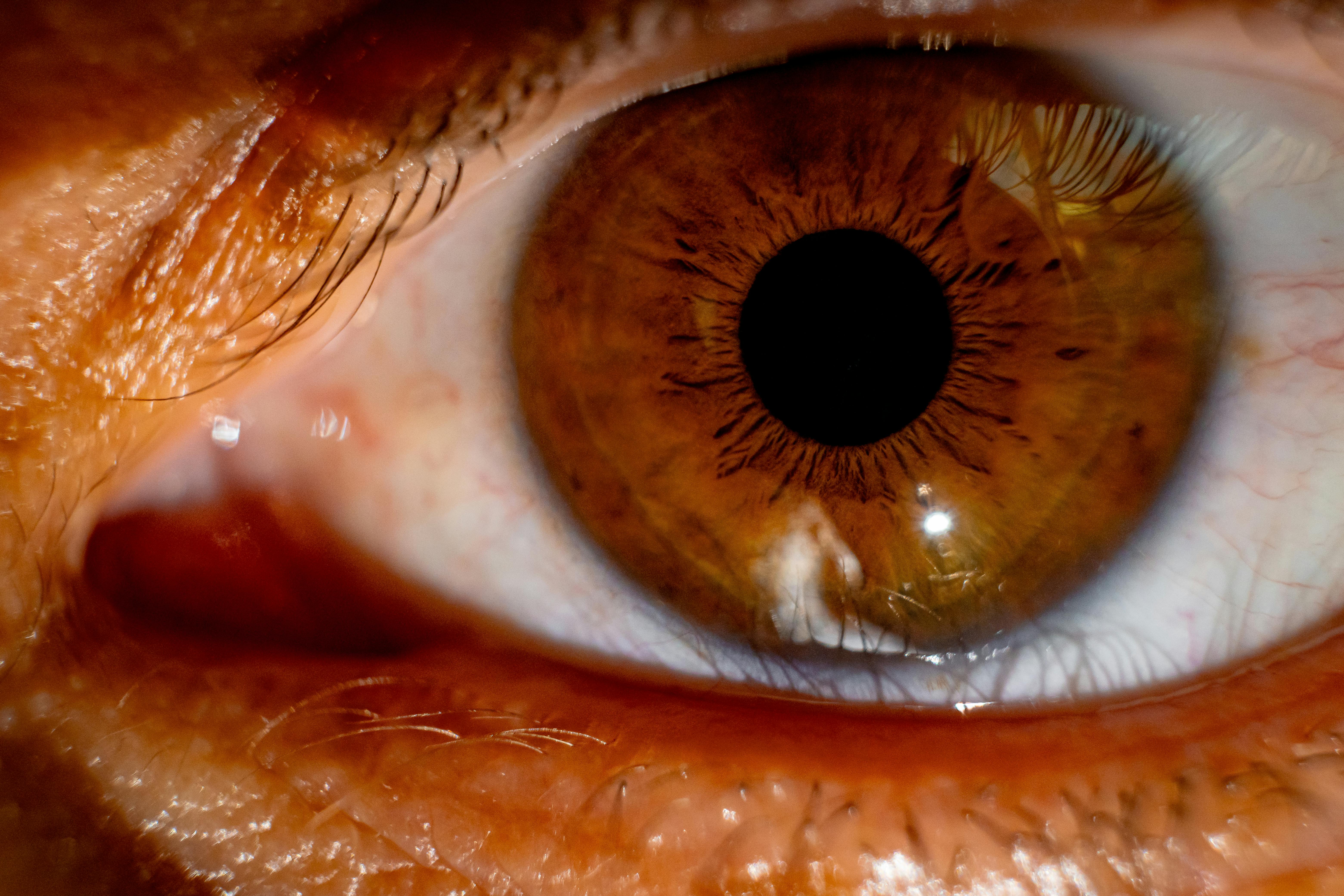
If you notice frequent, involuntary twitching or spasms (fasciculations) in your eyelid or other facial muscles, it can be a subtle but persistent indicator of a magnesium deficiency. Magnesium is often called "nature's relaxant" because it plays a fundamental role in regulating nerve and muscle function. It helps stabilize the electrical membranes of nerve and muscle cells. When magnesium levels drop, the nerves become hyperexcitable, causing erratic firing that manifests as these bothersome, uncontrollable twitches. Increasing your intake of dark leafy greens, nuts, seeds, and dark chocolate can often calm the nerves and bring immediate relief to these muscle spasms.
46. Fissured or 'Geographic' Tongue: Niacin or Folate Deficiency

If you look in the mirror and notice a tongue surface covered with deep, irregular grooves, fissures, or smooth, map-like patches (often called a 'geographic tongue'), it can be a subtle sign of long-term deficiency, commonly involving Niacin (B3) or Folate (B9). While not always directly harmful, these vitamins are crucial for the rapid cell turnover required to maintain the tongue's healthy papillae and lining. When cells don't regenerate efficiently, the surface can develop these prominent structural irregularities. This visible change is a quiet but persistent warning that your cellular repair mechanism
47. Slow-Healing Abrasions and Vitamin K Deficiency

A subtle and often-missed indicator of compromised nutritional status is the unusually slow healing of small cuts, scratches, or papercuts—even weeks after the initial injury. This isn't about major wound healing, which involves zinc and C, but the slow resolution of surface abrasions. This can signal an inadequate intake of Vitamin K. Crucial for more than just major blood clotting, Vitamin K is vital for the proper production of proteins involved in tissue repair and regeneration. Without sufficient K, your body struggles to lay down the early-stage foundational scaffolding needed for skin repair, leading to the lingering appearance of small scabs or red marks. To support this vital process, regularly include green leafy vegetables like kale, spinach, and Swiss chard in your meals.
48. Burning Feet Sensation: Pantothenic Acid (B5) Deficiency

An often-overlooked and distinct symptom of a Pantothenic Acid (Vitamin B5) deficiency is a persistent, unpleasant "burning feet" syndrome, especially noticeable at night. This is a form of sensory peripheral neuropathy. Vitamin B5 is an absolutely essential cofactor for creating Coenzyme A (CoA), a molecule critical for energy metabolism and the synthesis of neurotransmitters like acetylcholine. Without sufficient B5, the delicate myelin sheath—the protective coating around nerve fibers—can become damaged, leading to misfiring nerve signals that the brain interprets as intense heat or a burning sensation in the extremities. Because B5 is so widespread in nature, this symptom is rare today but serves as a crucial warning that the body’s core neurological support is compromised. Ensure your diet includes ample amounts of liver, mushrooms, avocados, and whole grains to keep your peripheral nerves functioning smoothly.
49. Ataxia and Tremors: Vitamin B1 (Thiamine) Deficiency

If you observe subtle, unexplained coordination problems (ataxia) or slight, uncontrollable hand tremors in the mirror, it could be a warning sign of a severe Vitamin B1 (Thiamine) deficiency. Thiamine is utterly critical for the function of the central and peripheral nervous system. Without it, the brain and nerves cannot metabolize glucose for energy, leading to a breakdown in communication and function, particularly in the cerebellum (the brain's coordination center). While rare in modern diets, this symptom is a distinct neurological red flag of the condition known as Beriberi or Wernicke-Korsakoff syndrome, which requires immediate medical attention. To ensure nervous system health, prioritize thiamine-rich foods like pork, whole grains, beans, and nutritional yeast.
50. Dry, Gritty Eyes and Omega-3 Fatty Acid Deficiency

If your eyes persistently feel dry, gritty, or irritated—a condition often mistaken for allergies or eye strain—it can be a common, yet overlooked, sign of insufficient Omega-3 Fatty Acids (EPA and DHA). Omega-3s are powerful anti-inflammatory agents that are critical components of the oil film produced by the meibomian glands in your eyelids. This oil is essential for preventing the rapid evaporation of tears. When Omega-3s are lacking, the quality of this oil film degrades, leading to chronic dryness, redness, and a constant feeling of foreign debris. This deficiency also increases general ocular inflammation. Boost your intake with fatty fish (salmon, sardines) twice weekly, or incorporate flaxseeds and walnuts into your daily diet to support healthy tear film production and soothe inflammation from the inside out.
51. Premature Fine Lines & Sagging Skin: Copper Deficiency
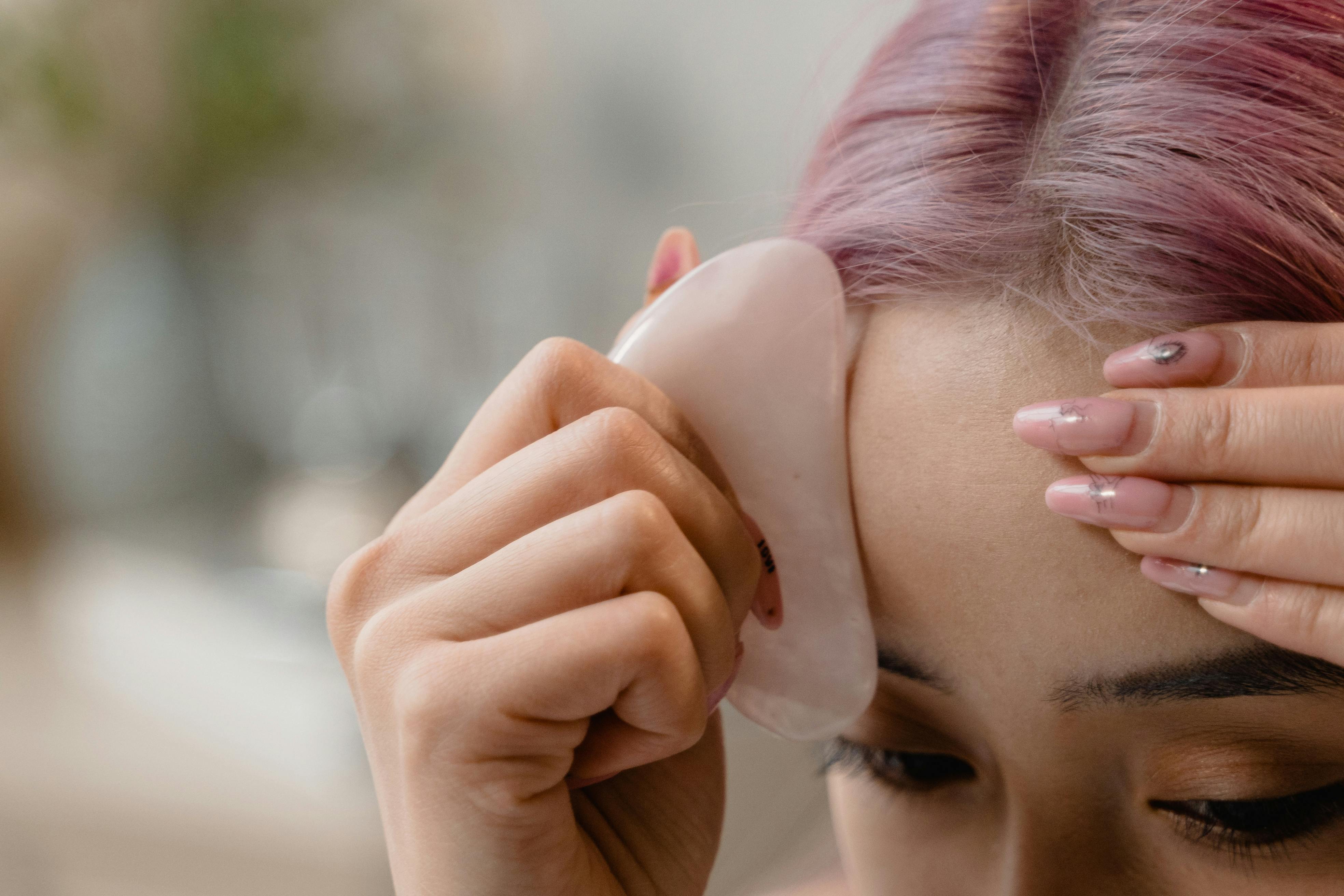
While major collagen loss is natural, premature fine lines, noticeable sagging, and a loss of elasticity can be a subtle sign of long-term Copper deficiency. Copper is not just a trace mineral; it's a critical cofactor for the enzyme lysyl oxidase, which is essential for cross-linking collagen and elastin fibers. These cross-links provide the fundamental strength and elasticity to skin and blood vessels. Without sufficient copper, collagen structures are weaker and more prone to breaking down, leading to visible aging faster than expected. To support skin structure and resilience, ensure your diet includes copper-rich foods like oysters, sesame seeds, cashew nuts, and dark chocolate.
52. Heightened Light Sensitivity (Photophobia) and Riboflavin (B2) Deficiency

If you find yourself constantly squinting, needing sunglasses indoors, or experiencing headaches from normal indoor lighting, it can be a persistent, under-the-radar sign of a Riboflavin (Vitamin B2) deficiency. Riboflavin is essential for the health of cells in the cornea and retina, and it also plays a key role in the integrity of the myelin sheath, which insulates optic nerves. When B2 is deficient, the cellular energy production in the eyes is impaired, leading to subtle inflammation and nerve sensitivity. This makes the eyes acutely intolerant of normal light levels—a condition known as photophobia. While many link B2 deficiency only to cracked lips, this heightened light sensitivity serves as a distinct neurological warning that your body is struggling to maintain cellular health in a critical sensory organ. To address this, regularly incorporate milk, yogurt, eggs, and fortified breakfast cereals into your daily meals.
53. Restless Legs and Folate (B9) or Iron Deficiency

While often considered a sleep or circulatory issue, the persistent, uncomfortable urge to move your legs (known as Restless Legs Syndrome or RLS) can be a subtle sign of a deficiency in Folate (Vitamin B9) or Iron. Both of these nutrients are essential for the production of dopamine in the brain, a neurotransmitter critical for controlling movement. When these nutrients are lacking, the resulting imbalance in dopamine signaling can manifest as the involuntary, often nocturnal, movements and sensations associated with RLS. This symptom is a strong signal that your nervous system's internal chemistry is compromised. Boosting intake of iron-rich and folate-rich foods like lentils, spinach, and fortified cereals can help stabilize these levels and bring much-needed relief.
54. Sluggish Pupil Response (Anisocoria-like effect) and Magnesium Deficiency
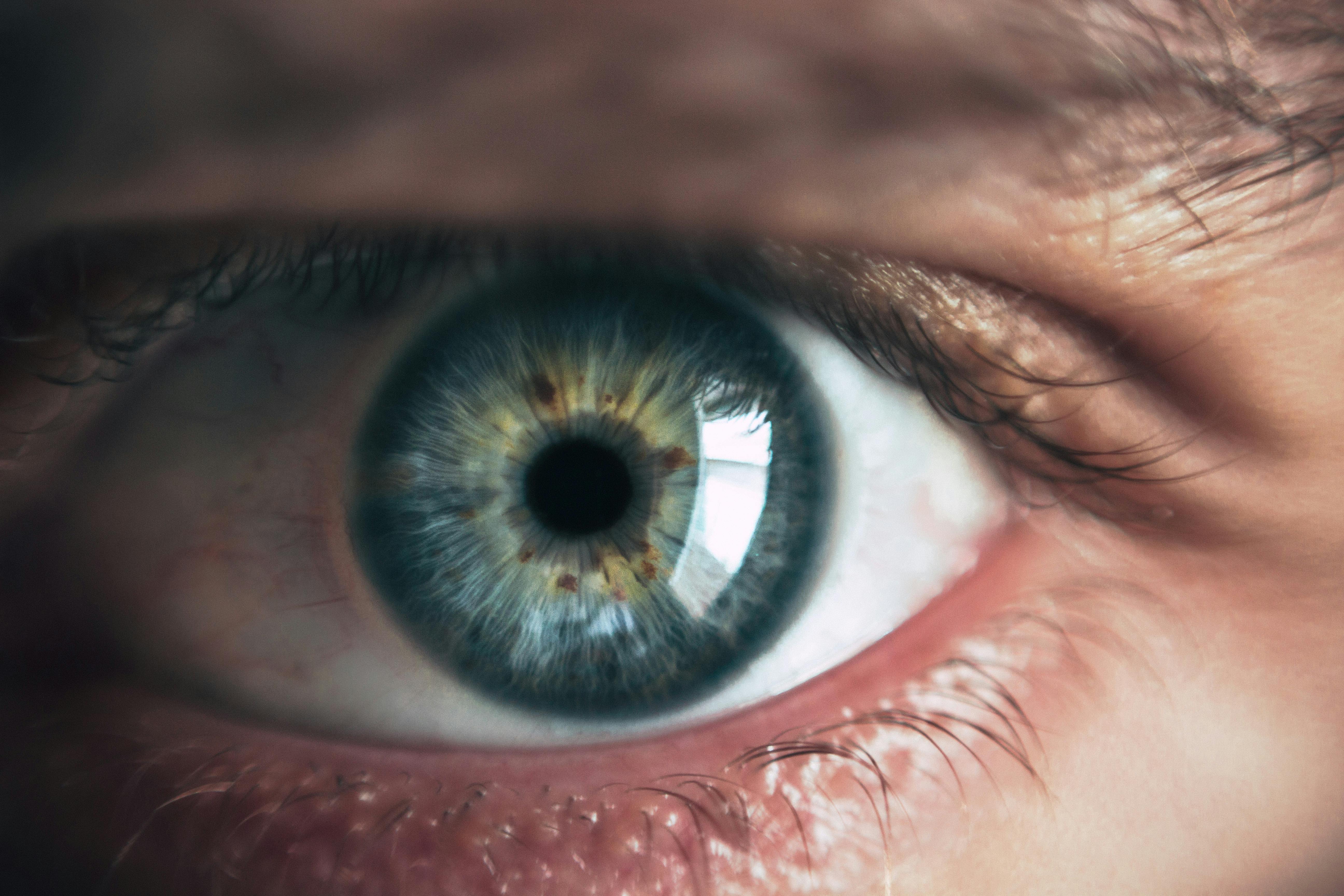
A subtle but significant sign you might notice when looking in a dim mirror or transitioning between light and dark rooms is a sluggish or uneven pupil response, sometimes giving a temporary, subtle appearance of unequal pupil size (pseudo-anisocoria) or simply a slow reaction to light change. Magnesium is the unsung hero of muscle relaxation and contraction, and this includes the iris sphincter and dilator muscles that control your pupils. When magnesium levels are deficient, these tiny, crucial muscles struggle to contract or relax quickly and efficiently. This compromised response can lead to momentary difficulty adapting to changes in light, a slight delay in pupil equalization, or even increased light sensitivity. This specific ocular sign is a direct, quiet warning that your body’s fundamental neuromuscular signaling—reliant on magnesium—is impaired.
55. Flaky Eyebrows and Selenium Deficiency

If you notice persistent flakiness or dry, scaly skin specifically within your eyebrows and surrounding area, it can be an often-missed indicator of a Selenium deficiency. This trace mineral is essential for thyroid function, which in turn regulates skin and hair cell turnover. Selenium is also a key component of powerful antioxidant enzymes that protect skin cells from oxidative damage. When levels are low, cell renewal in localized, high-turnover areas like the brows can become sluggish and impaired, leading to dry, scaly patches and, in some cases, even eyebrow hair thinning. Brazil nuts, seafood, and fortified whole grains are among the best sources to replenish this vital mineral.
56. Bleeding Gums from Dental Flossing: Vitamin K Deficiency
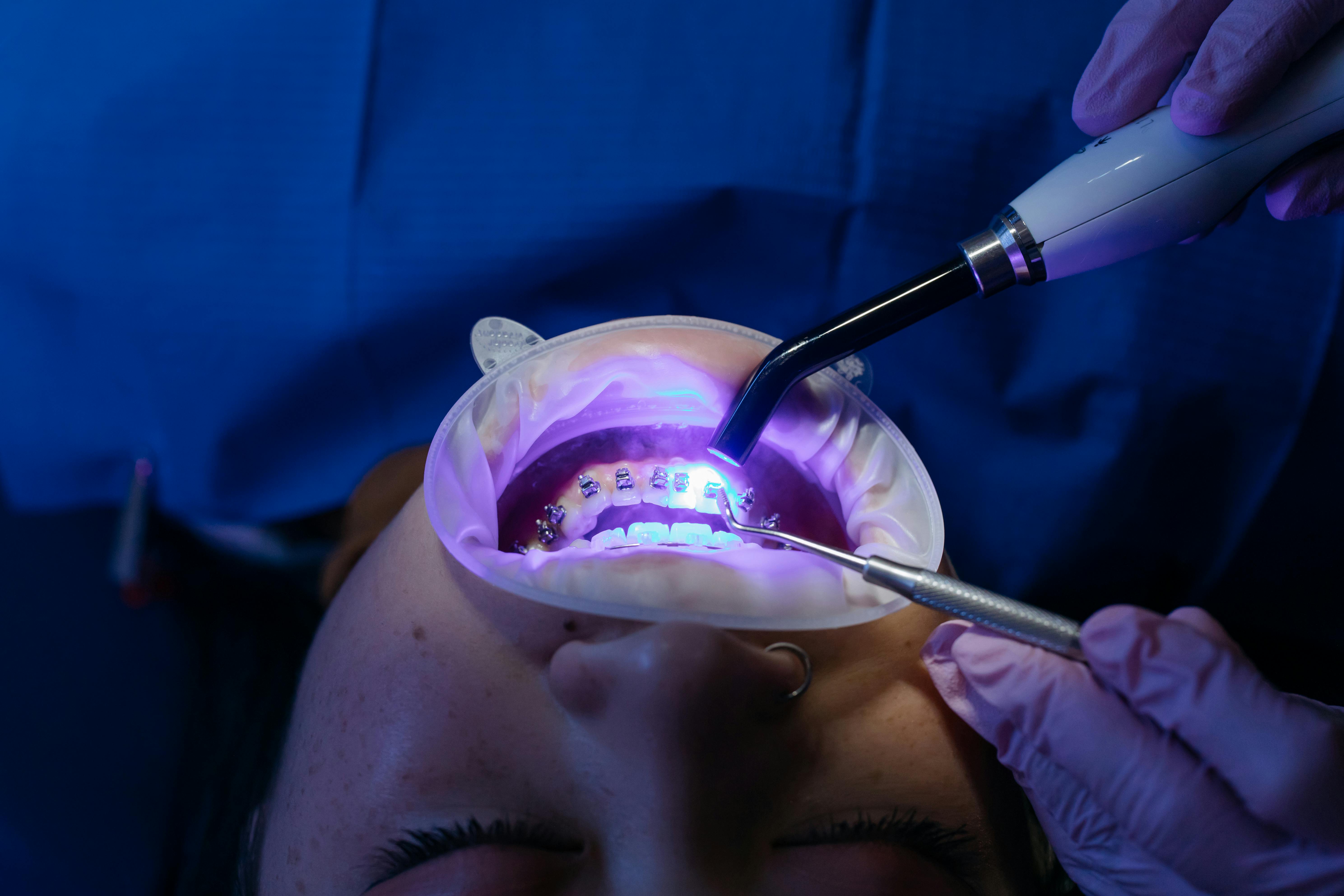
While persistent, swollen, bleeding gums are widely linked to Vitamin C deficiency , a more subtle and overlooked sign is excessive bleeding only after flossing or minor dental cleanings. This hyper-sensitivity to light trauma can signal a primary deficiency in Vitamin K, the essential nutrient required for synthesizing crucial blood clotting factors (prothrombin and others) in the liver. Without adequate Vitamin K, the tiny capillaries in the gums struggle to stop bleeding quickly following normal mechanical stress. This distinct dental sign is a powerful, localized red flag that your body's coagulation mechanism is compromised. Boost your intake with foods like kale, collard greens, and broccoli.
57. Eyelid Twitches or Facial Spasms: Magnesium Deficiency
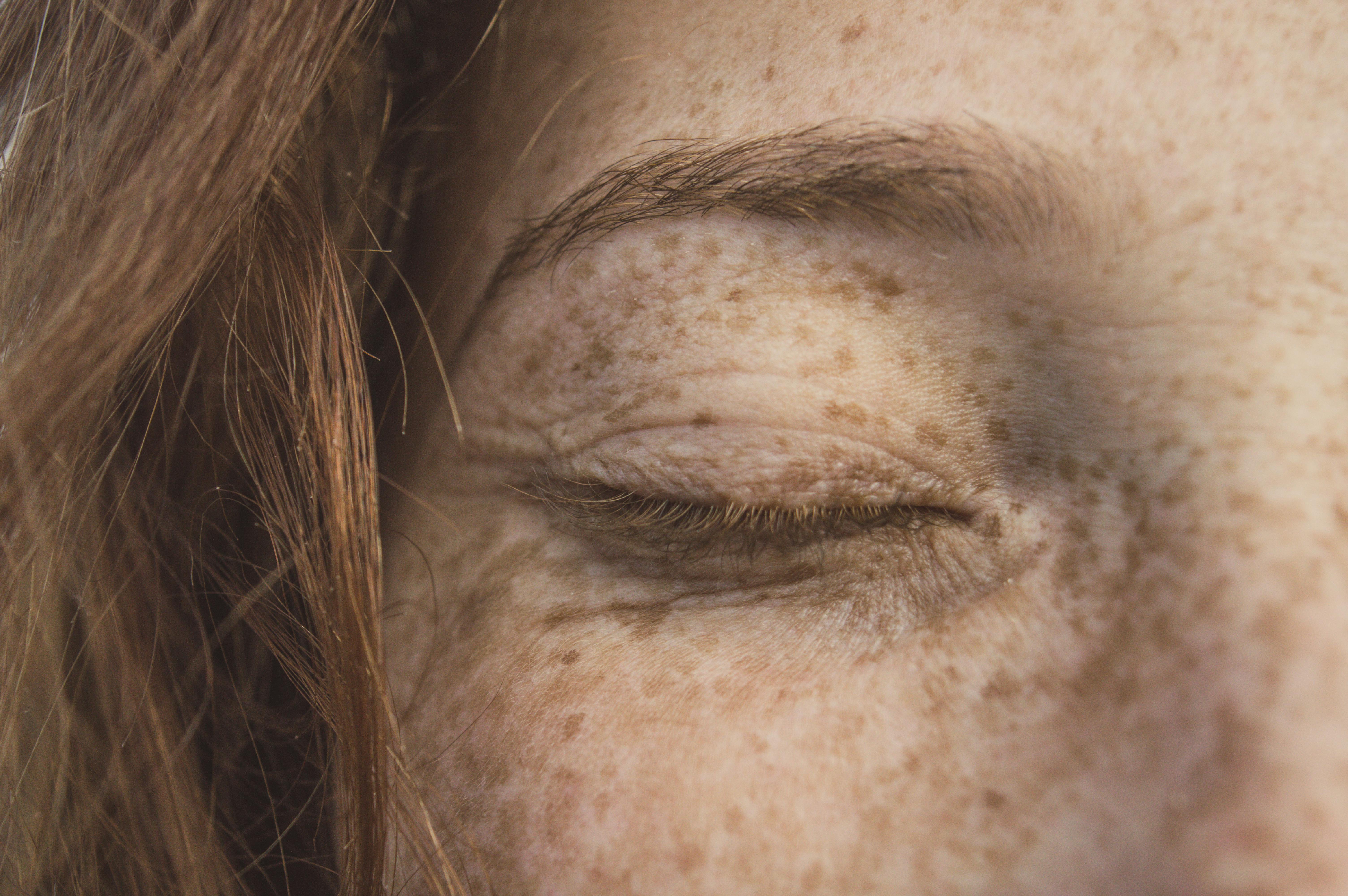
If you notice frequent, involuntary twitching or spasms (fasciculations) in your eyelid or other localized facial muscles, it can be a subtle but persistent indicator of a Magnesium deficiency. Magnesium is often called "nature's relaxant" because it plays a fundamental role in regulating nerve and muscle function. It helps stabilize the electrical membranes of nerve and muscle cells. When magnesium levels drop, the nerves become hyperexcitable, causing erratic firing that manifests as these bothersome, uncontrollable twitches. This specific, localized muscle spasm is a direct, quiet warning that your body's fundamental neuromuscular signaling—reliant on magnesium—is impaired and needs replenishment. Increasing your intake of dark leafy greens, nuts, seeds, and dark chocolate can often calm the nerves and resolve these spasms.
58. Tinnitus (Ringing in the Ears): Vitamin B12 Deficiency

While tinnitus—the perception of ringing, buzzing, or hissing in the ears—is often associated with noise damage, for some, it can be a subtle symptom of a Vitamin B12 deficiency. B12 is essential for maintaining the myelin sheath, the fatty protective coating around nerve fibers. A deficiency can lead to nerve damage in the auditory pathway or brain, causing the erratic firing of neurons that the brain interprets as sound. This is a crucial, often-overlooked warning that your neurological support system is compromised.
59. Premature Graying: Copper and Vitamin B12 Deficiency

Spotting silver strands in your 20s or early 30s is often dismissed as genetics or stress, but your mirror may be reflecting a specific nutritional gap, particularly in Copper or Vitamin B12. Copper is a non-negotiable biological catalyst for tyrosinase, the specific enzyme your body uses to produce melanin (pigment). Without sufficient copper, this pigmentation process stalls, and the hair shaft grows out colorless. Simultaneously, Vitamin B12 is vital for the health of red blood cells that oxygenate the hair follicle. Before reaching for the dye, consider that this loss of color might be a metabolic signal; restoring these levels with foods like oysters, cashews, and fortified grains can potentially support your natural hue from the root.
Seeing The Symptoms
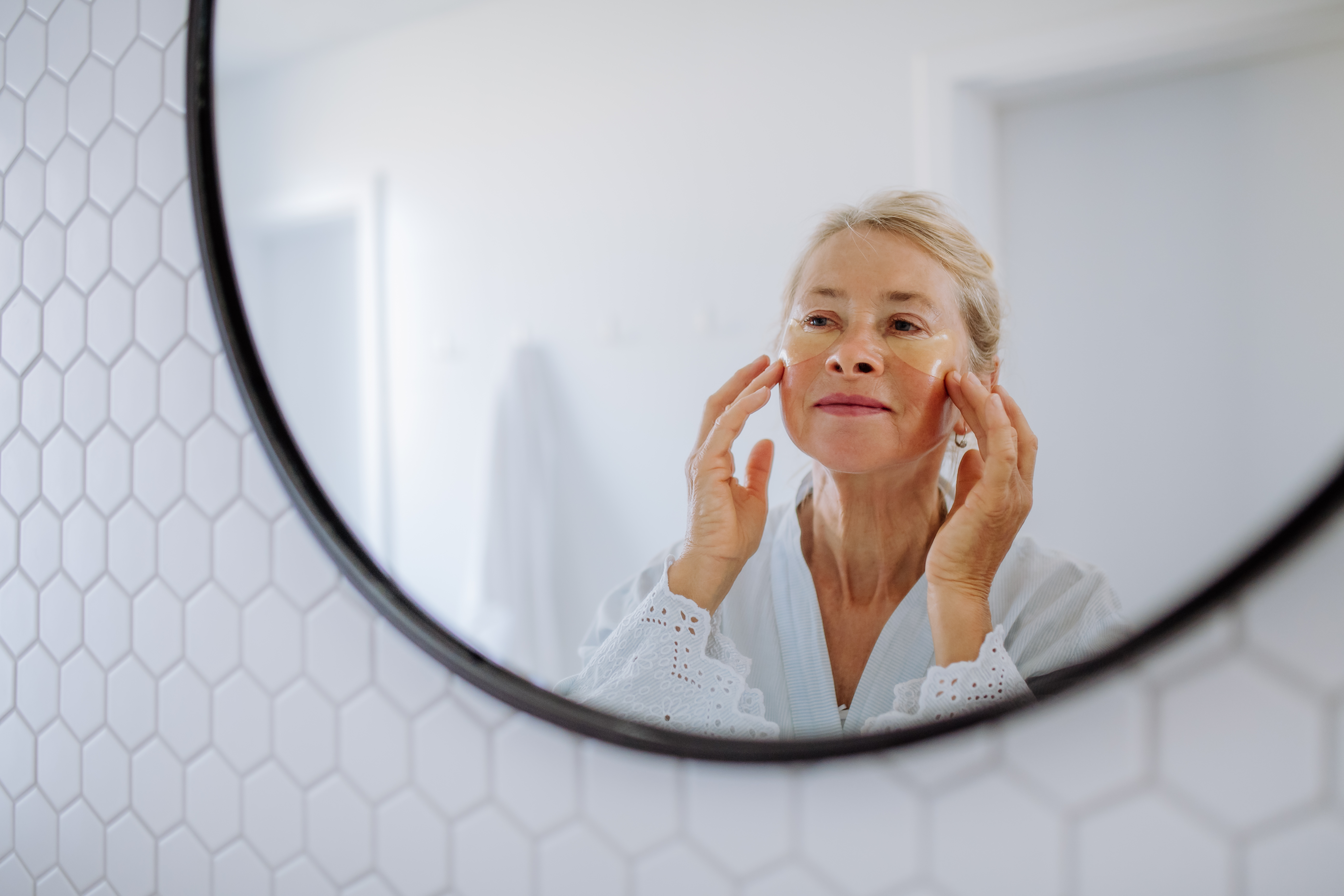
Recognizing the signs of vitamin deficiencies in your reflection is just the first step in addressing potential health issues. Ensuring a well-balanced diet rich in essential vitamins and minerals is crucial for maintaining overall health and preventing deficiencies. Regular check-ups with a healthcare provider can help monitor your nutritional status and address any deficiencies early on. By taking proactive steps to improve your diet and lifestyle, you can enhance your well-being and prevent the adverse effects of vitamin deficiencies, ensuring a healthier, more vibrant future.